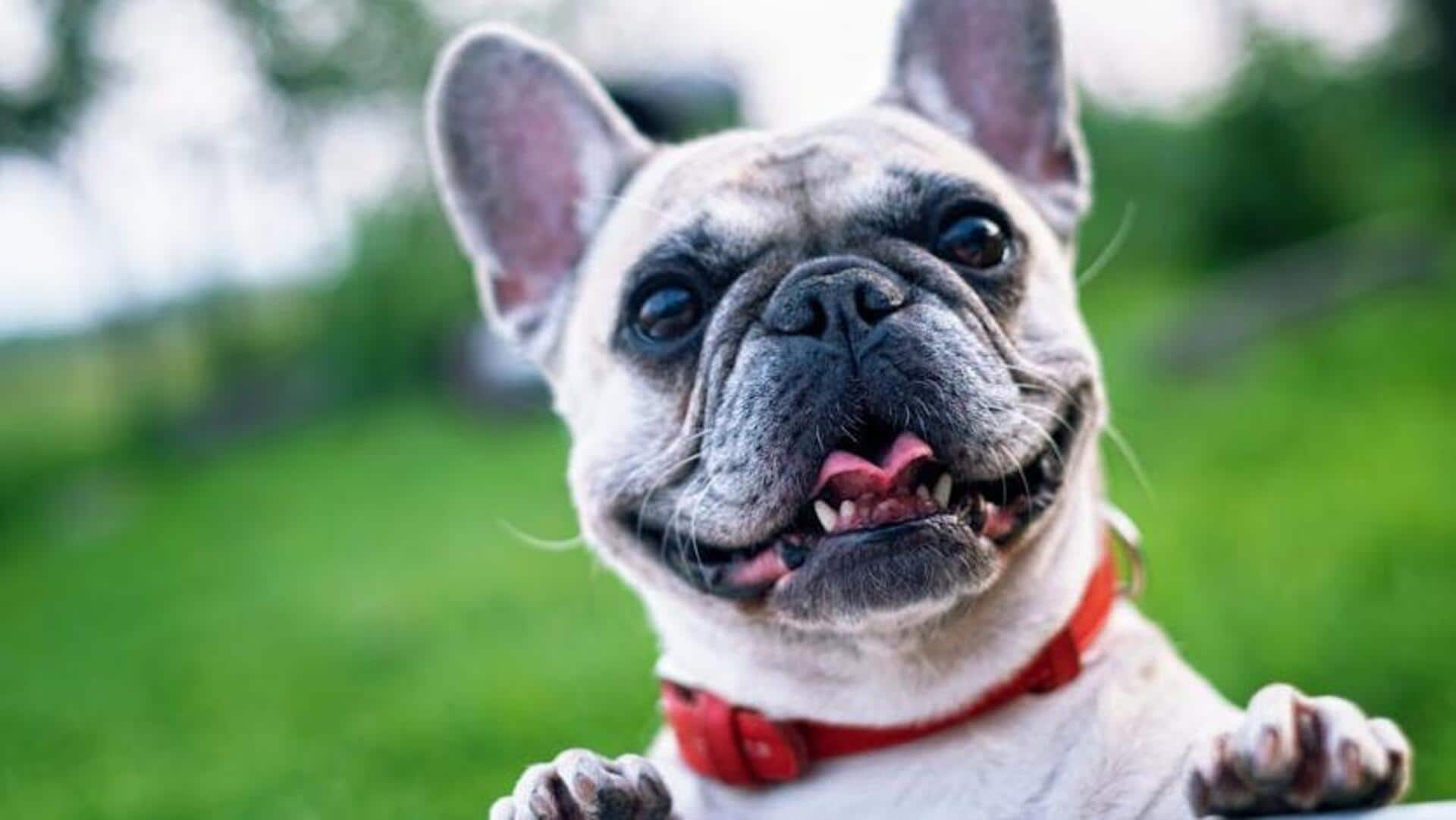Respiratory health tips for your dog


What's the story
Bulldogs, with their loose, wrinkled skin and distinctive pushed-in noses, are a breed that captures many hearts.
These endearing features come with a cost: Bulldogs are brachycephalic dogs, which means they have short nasal passages and flat faces.
This unique anatomy can lead to respiratory challenges, making breathing difficulties a concern that requires vigilant monitoring and proactive care for their health.
Fret not, follow these tips for their respiratory health.
Recognize breathing issues early
Keep a close watch on your Bulldog for any signs of breathing difficulty.
Indicators of respiratory distress can range from labored breathing and loud snoring to persistent coughing or gagging.
These symptoms may signal conditions such as brachycephalic obstructive airway syndrome (BOAS), common in Bulldogs.
Promptly consulting a veterinarian upon observing any unusual breathing patterns is vital for early intervention and care.
Maintain a healthy weight
Excess weight in Bulldogs can worsen respiratory problems by putting additional pressure on their airways.
It's essential to maintain a healthy weight through a proper diet and regular, moderate exercise.
Care should be taken to prevent overexertion, as Bulldogs have limited stamina and can overheat quickly, leading to breathing difficulties.
A balanced approach to diet and exercise is key for respiratory health.
Create an ideal environment
Bulldogs are highly sensitive to heat due to their brachycephalic traits, which can aggravate breathing issues.
To maintain their comfort, use air conditioning or fans in warm weather. It's best to limit their outdoor exposure during the day's hottest periods.
Providing continuous access to fresh water is crucial to prevent dehydration and keep them cool, thereby reducing the risk of respiratory distress.
Regular veterinary check-ups
It's crucial to have your Bulldog undergo regular veterinary check-ups.
During these visits, a vet can monitor any shifts in your dog's breathing capabilities and offer guidance on managing any issues.
If needed, they might suggest tailored exercises that help fortify the respiratory muscles without overburdening your pet.
These preventative measures are key to ensuring your Bulldog's respiratory system remains as healthy as possible.
Recent Posts
Owner banned from keeping pets for 10 years after dog left in this horrific state
Female bull breed Mia is now unrecognisable after she suffered horrific neglect15:04, 27 Jun 2025Updated…
Dog-friendly society on hunt for more off-leash space in Greater Victoria
CRD DOGGS was formed after Saanich removed 90 per cent of its off-leash trail areas…
Video shows Myrtle Beach family’s beloved dog’s last moments before alligator attack
MYRTLE BEACH, SC (WMBF) - A family along the Intracoastal Waterway is grieving after Ring…
Quarter of pet owners underestimate this one thing
Introducing a new pet to your family is an exciting journey. Whilst some pets get…
How to prepare your pets for Fourth of July fireworks. These adoptable pets will need your help: June 28-29
STATEN ISLAND, N.Y. — As Independence Day approaches, pet owners should be aware that the…
Pet of the week • 06-27-25
Need a little sweetness in your life with just the right amount of zoom? Meet…


